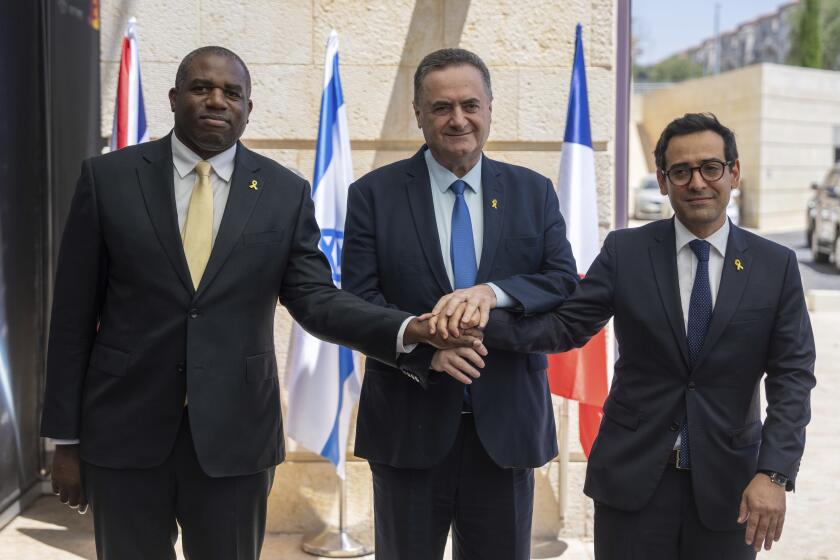Britain’s Brown says decision to invade Iraq was made for right reasons
British prime minister Gordon Brown said it was right for the U.K. to invade Iraq in 2003, as he began four hours of questioning on the conduct of the Iraq war and Britain’s part in the conflict.
“It was the right decision and it was for the right reasons,” Brown, who was chancellor of the Exchequer at the time, told a panel inquiring into the war in London on Friday. “It was impossible to persuade” Iraqi dictator Saddam Hussein “he should abide by international law.”
The inquiry into the U.K.’s role in the U.S.-led invasion has already heard evidence from former prime minister Tony Blair, as well as other ministers and diplomats involved in the government’s decision to go to war. No report will be published until after the U.K. general election that must be held by June.
The probe, which opened on Nov. 24 and is chaired by a retired civil servant, John Chilcot, is the fifth into the war. Brown is also being questioned about funding for equipment used by the 40,000 troops sent to Iraq.
“There was no financial restraint on us doing the best for the military,” Brown told the panel.
When Blair gave evidence Jan. 29, he said he had no regrets about removing Hussein. Blair’s former communications chief, Alistair Campbell, told the inquiry on Jan. 12 that Brown was a member of the inner circle that made the key decisions in the period leading up to the invasion.
A poll by ComRes Ltd. for the Independent newspaper published Feb. 3 found 60 percent of those surveyed saying Brown shares responsibility with Tony Blair for the war.
‘So Many Accusations’
“There are serious questions which the British people and the armed forces will want Gordon Brown to answer,” Liam Fox, defense spokesman for the main opposition Conservative Party, said in an e-mailed statement yesterday. “There have been so many accusations that he knowingly underfunded defense, that he blocked equipment orders, cut the budget while we were at war, and played politics with announcements of troop numbers.”
Brown will meet privately today with families of some of the 179 British service personnel who died in the conflict, Brown’s spokesman, Simon Lewis, told reporters yesterday.
“There was a request from the families, as they requested to meet Mr. Blair and others, and the prime minister clearly thinks it’s the right thing to do,” Lewis said.
The review is being carried out by a panel of the Privy Council, which is investigating the period from summer 2001 to July 2009. The panel, which includes Usha Prashar, a member of the House of Lords, Lawrence Freedman, a security academic, Martin Gilbert, a historian, and Roderic Lyne, a senior adviser to JPMorgan Chase & Co., has the authority to question any British citizen and to see all relevant documents.
U.K. combat troops carried out their last patrol in Iraq on April 30 last year and have left the country, according to the Ministry of Defense. Between 95,568 and 104,266 civilians have died in the conflict, according to the Web site Iraq Body Count.
More to Read
Sign up for Essential California
The most important California stories and recommendations in your inbox every morning.
You may occasionally receive promotional content from the Los Angeles Times.










